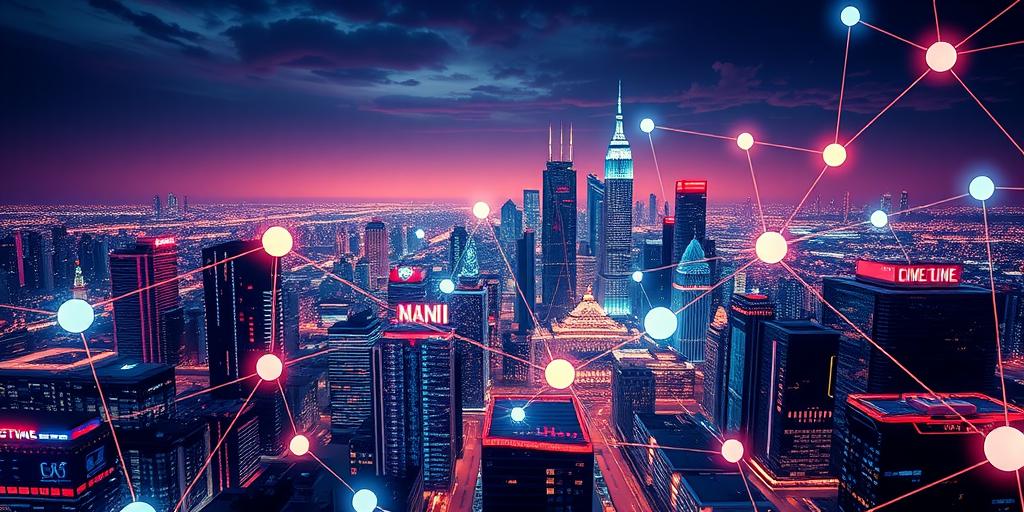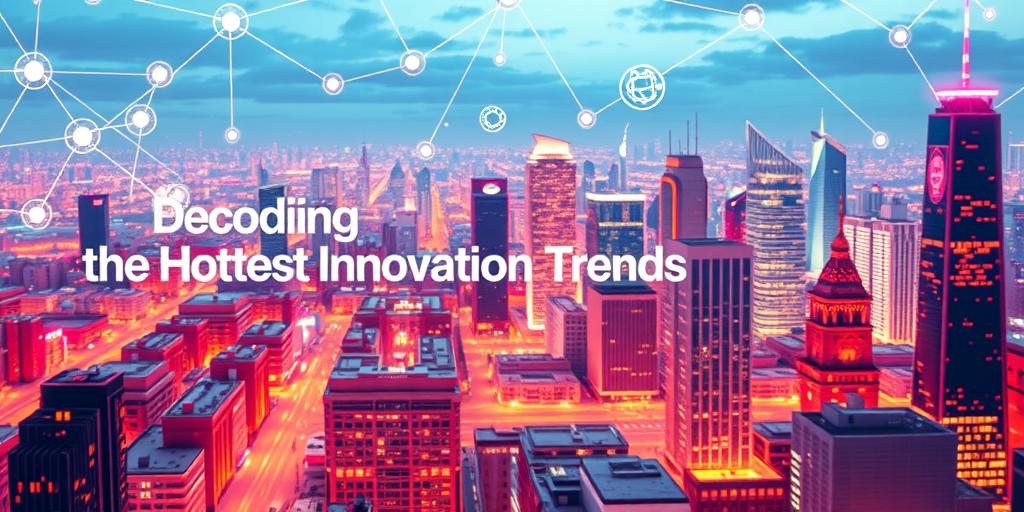Key Trends Shaping the Digital Economy
Explore the key trends shaping the digital economy, including AI, metaverse, blockchain, creator economy, cybersecurity, remote work, and sustainable tech.

Key Trends Shaping the Digital Economy
Key Trends Shaping the Digital Economy
The digital economy is in constant flux, evolving at a breakneck pace driven by technological innovation, changing consumer behavior, and global events. To stay competitive, businesses need to understand and adapt to these key trends. Let's dive into the forces that are shaping the digital landscape:
1. Artificial Intelligence (AI) and Automation
AI is no longer a futuristic concept; it's a present-day reality transforming industries across the board. From automating routine tasks to powering sophisticated data analytics, AI and machine learning are boosting efficiency and driving innovation.
- Impact: Enhanced customer experiences, optimized operations, and data-driven decision-making.
- Examples: Chatbots, predictive analytics, personalized marketing campaigns.
2. The Rise of the Metaverse
The metaverse, a shared virtual world environment, is gaining traction as a new frontier for social interaction, commerce, and entertainment. While still in its early stages, the metaverse has the potential to revolutionize how we connect, collaborate, and transact online.
- Impact: New opportunities for brands to engage with consumers, virtual events, and immersive experiences.
- Examples: Virtual concerts, digital real estate, augmented reality shopping.
3. Decentralization and Blockchain
Blockchain technology and decentralized finance (DeFi) are disrupting traditional financial systems by offering greater transparency, security, and efficiency. Cryptocurrencies, NFTs, and decentralized applications (dApps) are gaining mainstream adoption.
- Impact: Secure and transparent transactions, new investment opportunities, and the democratization of finance.
- Examples: Cryptocurrency payments, NFT marketplaces, supply chain tracking.
4. The Creator Economy
The creator economy is booming, empowering individuals to monetize their skills, passions, and creativity online. Platforms like YouTube, TikTok, and Patreon provide creators with tools to build communities, share content, and earn income.
- Impact: New opportunities for content creators, direct connections with audiences, and personalized experiences.
- Examples: Influencer marketing, online courses, subscription-based content.
5. Cybersecurity and Data Privacy
As the digital economy grows, so does the importance of cybersecurity and data privacy. Businesses must prioritize protecting sensitive data and building trust with customers by implementing robust security measures and adhering to data privacy regulations.
- Impact: Protection against cyber threats, compliance with regulations, and enhanced customer trust.
- Examples: Multi-factor authentication, data encryption, privacy-focused design.
6. Remote Work and the Gig Economy
The pandemic accelerated the shift towards remote work and the gig economy. Businesses are adopting flexible work arrangements, and individuals are increasingly choosing freelance or contract-based work.
- Impact: Access to a global talent pool, increased flexibility, and new opportunities for individuals.
- Examples: Remote collaboration tools, freelance platforms, virtual teams.
7. Sustainable Technology
With growing concerns about climate change, sustainable technology is becoming increasingly important. Businesses are investing in green technologies, reducing their carbon footprint, and promoting environmental responsibility.
- Impact: Reduced environmental impact, enhanced brand reputation, and cost savings.
- Examples: Renewable energy, energy-efficient devices, sustainable data centers.
Conclusion:
The digital economy is a dynamic and ever-changing landscape. By understanding and adapting to these key trends, businesses can unlock new opportunities, stay ahead of the competition, and thrive in the digital age.








